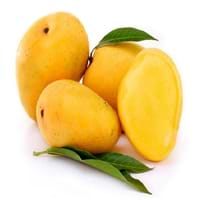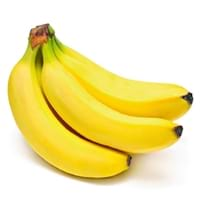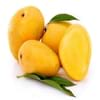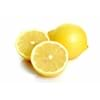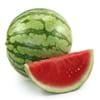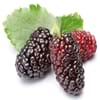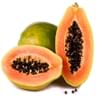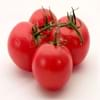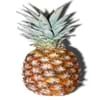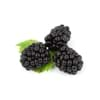Health Benefits
Cancer prevention, Cures fatigue, Heart care, Prevents strokes
Cancer prevention, Diarrhea treatment, Muscle pain relief, Piles treatment, Prevents constipation, Skin cleansing, Ulcer treatment
General Benefits
Anti oxidant properties, Boosts immune system, Controls blood pressure, Digestive aid, Improves eye vision, Maintains healthy cholesterol level
Controls blood pressure, Digestive aid, Maintains healthy cholesterol level, Strengthens bones
Skin Benefits
Anti-aging benefits, Brightens and lightens complexion, Skin cleansing, Skin rejuvenation, Treatment of acne, Treatment of blackheads, Treatment of dark spots
Anti-aging benefits, Hydrates skin, Skin rejuvenation
Hair Benefits
Good conditioner, Prevents hair loss, Treatment of dandruff
Prevents hair loss, Shiny hair, Softening mask
Allergy Symptoms
Abdominal pains, Breathing difficulty, Diarrhea, Runny nose, Sneezing, Swelling of mouth, tongue or lips, Watery eyes
Abdominal pains, Decrease in blood pressure, Dizziness, Hives, Itching of mouth, Lightheadedness, Swelling, Swelling of mouth, tongue or lips, Weak or racing pulse, Wheezing
Side Effects
Increase in blood sugar level, Diarrhoea, Weight gain
Headache, Intense headache, Tooth decay
Best Time to Eat
Don't consume at night and before bed, Eat the fresh ones, avoid mixing with any other foods, don't eat after meal., Morning time (before lunch)
As a snack in the late afternoon, Don't consume at night and before bed, Eat the fresh ones, avoid mixing with any other foods, don't eat after meal.
Vitamin B5 (Pantothenic Acid)
Vitamin C (Ascorbic Acid)
Vitamin K (Phyllochinone)
Phytosterol
Not Available
Calories in Fresh Fruit with Peel
Not Available
Calories in Fresh Fruit without Peel
Type
Tree fruit
Berry, Tropical
Season
Spring, Summer
All seasons
Varieties
Alphonso, Valencia Pride, Badami, Chaunsa, Nam Dok Mai, Glenn, Sindhri, Madame Francique, Kesar and Keitt
Cavendish Bananas, Lady Finger Bananas, Pisang Raja, Williams Bananas and Cooking Bananas
Color
Orange, Red, Yellow
Green, Yellow
Inside Color
Yellow
White
Shape
Oval
Curving Cylinder
Origin
Southern Asia
Papua New Guinea
Soil Type
Clay, Loam, Sand
Well-drained
Climatic Conditions
Humid, Warm to hot climate
Warm
Facts about
- A mango tree can bear fruits even after the age of 300 years.
- Height of a mango tree can be as high as 100 feet.
- In India, mango is known as a symbol of love. Also, a mango basket is considered as the sign of friendship.
- As bananas contain potassium-40 which is radioactive isotope of potassium, bananas are radioactive.
- Bananas float in water.
- There are around 1000 varieties of bananas.
- Eating this fruit will cheer you up.
Other Countries
Bangladesh, Brazil, China, Indonesia, Mexico, Nigeria, Pakistan, Philippines, Thailand
Brazil, Cameroon, China, Colombia, Ecuador, Ghana, Indonesia, Philippines, Uganda
Top Importer
United States of America
Europe
Top Exporter
Mexico
Ecuador
Botanical Name
Mangifera Indica
Musa acuminata and Musa balbisiana
Synonym
Not Available
Musa × dacca , Musa × sapidisiaca , Musa × sapientum
Subkingdom
Tracheobionta
Tracheobionta
Division
Magnoliophyta
Magnoliophyta
Class
Magnoliopsida
Liliopsida
Subclass
Rosidae
Liliidae
Order
Sapindales
Zingiberales
Family
Anacardiaceae
Musaceae
Species
M. indica
M. acuminata , M. balbisiana
Generic Group
Cashew
Banana
Difference Between Mango and Banana
We might think that Mango and Banana are similar with respect to nutritional value and health benefits. But the nutrient content of both fruits is different. Mango and Banana Facts such as their taste, shape, color, and size are also distinct. The difference between Mango and Banana is explained here.
The amount of calories in 100 gm of fresh Mango and Banana with peel is Not Available and 95.29 kcal and the amount of calories without peel is 60.00 kcal and 89.00 kcal respectively. Thus, Mango and Banana belong to Low Calorie Fruits and High Calorie Fruits category.These fruits might or might not differ with respect to their scientific classification. The order of Mango and Banana is Sapindales and Zingiberales respectively. Mango belongs to Anacardiaceae family and Banana belongs to Musaceae family. Mango belongs to Mangifera genus of M. indica species and Banana belongs to Musa genus of M. acuminata , M. balbisiana species. Beings plants, both fruits belong to Plantae Kingdom.
